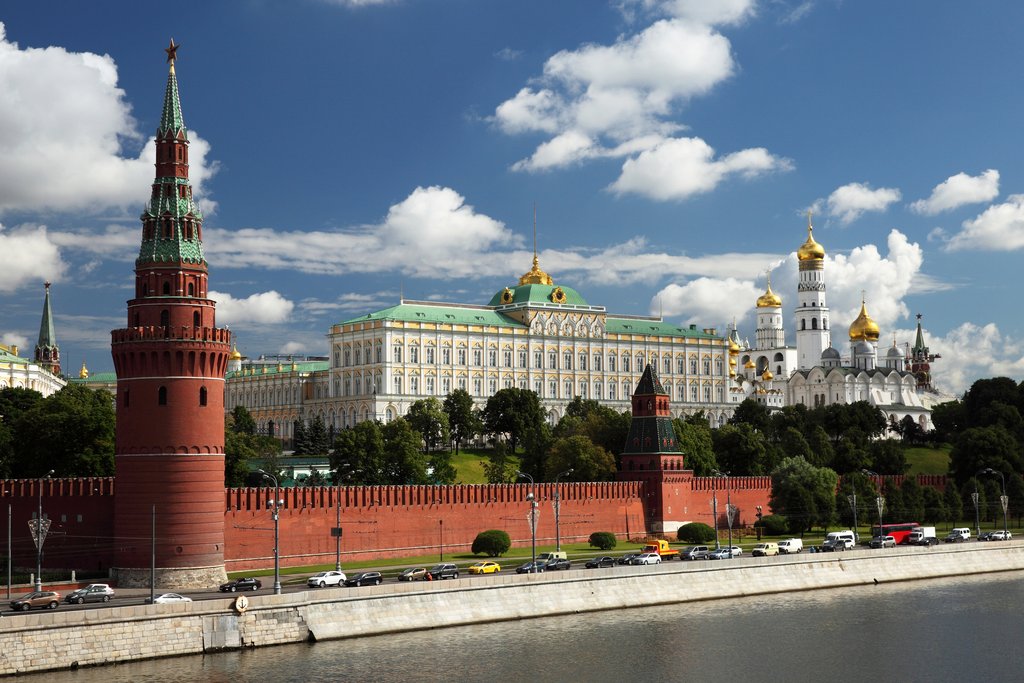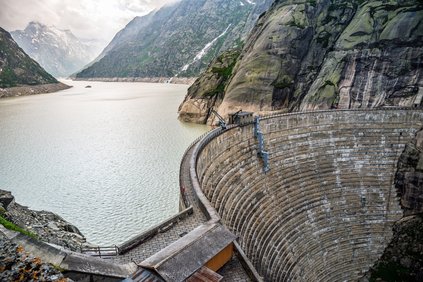Research - 15.03.2024 - 11:43
Elections in Russia: Dead souls, electronic black boxes and administrative resources
When Russia elects its president, a whole series of manipulative behaviour will take place in the background in order to achieve the desired result. Elena Denisova-Schmidt researches corruption and integrity in Eastern Europe at HSG - in this text, she provides insight into Russia's sophisticated electoral machinery.

This year, the Russian presidential election will be held on three consecutive days - from 15 to 17 March. This long duration is justified by the "good experience" of the three-day parliamentary election in 2021 or the constitutional referendum in 2020 during the coronavirus pandemic. In addition to dropping ballot papers directly into the ballot box, elections can also be held electronically for the first time in 28 regions. This affects approximately a quarter of all voters. The Central Election Commission is heavily promoting electronic voting because it is "convenient" and "modern". In fact, this form of election offers various opportunities for creative counting of votes. Or to put it in Stalin's words: "It doesn't matter who votes how; what really matters is who counts the votes and how".
The elections: a show with a pre-programmed result
The incumbent Putin has three rivals, but they have no chance. Elections in Russia are well organised shows with pre-programmed results. Only internally approved female candidates (there was one woman in the last presidential elections in 2018) and male candidates are allowed to run. In this year's election, however, the Kremlin is playing it safe.
How can opposition be prevented? In addition to bans, arrests and poisoning, the repertoire of decision-makers in Russia also includes several sophisticated means, such as the identification of invalid signatures.
This is because candidates who are not nominated by a party must submit at least 300,000 signatures in order to be allowed to stand for election. In the case of undesirable candidates, errors are often found that lead to non-admission, as in the recent case of Boris Nadezhdin, who did not make it onto the ballot. The official reason given by the Central Election Commission is that more than five per cent of the signatures on the nomination papers were invalid. Whether Nadezhdin is actually an opposition member or part of the show remains to be seen. In any case, he has an excellent name: Nadezhdin comes from the Russian word "Nadezhda" - hope. The symbolic power of his name certainly played a decisive role in his ineligibility for the election.
How signatures suddenly become invalid
Invalid signatures are not about constructed "mistakes". They are often genuine errors that are vaguely regulated by law, but which are specifically sought out. In addition to the names of the signatories, the signatures also contain addresses and other personal details. The Central Election Commission may decide to compare them with an outdated database in order to find discrepancies. Errors can also occur in places of birth. For example, someone was born in a village that is now a city district. The naming of the village as the place of birth would therefore be an error. Absurd cases such as the use of outdated names such as Leningrad (from 1991 St. Petersburg) or Sverdlovsk (also from 1991 Yekaterinburg) for signatories born before these cities were renamed are also considered errors.
There are also two legally compliant common abbreviations for the Russian word "city" - "gorod" - "g." and "gor." If someone was born in "g." Novosibirsk and later has "gor." Novosibirsk in the passport, this could be considered a mistake by the Election commission. The confusion of "Е" and "Ё" is another trap: the letter "Е" can stand for both letters in Russian. A Fёdor Shalyapin could not be recognised as such by an election commission if his name is Fedor Shalyapin according to his papers. Minor corrections and inaccurate signatures can be recognised as mistakes. It is interesting to note that errors were also found in the case of candidate Vladimir Putin: 0.15 per cent of signatures were declared invalid. However, such data is used to check the plausibility of Boris Nadezhdin's ineligibility.
In some places, extras are used as alleged candidates who form a queue to prevent a real candidate from submitting their documents on time. Flexible opening hours at the election commission can also be a contributing factor. Complaints are accepted but not addressed. If the election commission admits a candidate who has not been approved internally, it can even withdraw its decision. This withdrawal is actually well regulated in legal terms.
Putin bypasses election debates
All of these processes are referred to as "administrative resources" in Russia. All possible power structures are activated in favour of a single candidate. The "administrative resource" encompasses a variety of different methods. For example, the incumbent president did not take part in a single election debate. He simply did not need to. His agenda was full of high-profile appearances. The state media reported on this intensively: Meetings with government representatives, presentation of prizes and awards, visits to companies and universities in several regions of Russia and much more.
The administrative resource was fully utilised for the first time in 1996, when President Boris Yeltsin took office for his second term. A disastrous economic situation, unpaid salaries, blackouts in the electricity supply, growing disillusionment with failed market reforms, loud calls for his resignation and the president's rapidly deteriorating health made his re-election unlikely, almost impossible. "The end justifies the means" was the guiding principle at the time. The end was actually honourable and good: to protect the country from collapse, to continue the market reforms, to prevent the return of the communists. However, from this point onwards, decision-makers learnt how efficient administrative resources can be and began to use them more frequently.
In addition, the use of the administrative resource also meant a strong involvement of state employees. Doctors, teachers, civil servants and employees of state-owned enterprises are often required to prove to their superiors that they have participated in elections. Sometimes they even have to justify how they voted, even though the elections are secret.
When dead souls vote
There is another way in the Kremlin's repertoire to adjust the results and repeat the success of the last presidential election - around 67% voter turnout and around 76% of votes in favour of the incumbent president: counting "dead souls". This is the term used in Russia to describe people who only exist on paper. The term goes back to the novel of the same name by Nikolai Gogol (1809-1852) from 1842. The hero trades with recently deceased serfs - "dead souls" - to build up his fortune. Even in 2024, civil servants are very good at filling gaps in the statistics. Students, for example, can be credited twice, both at their place of residence and at the location of a university. Recruits and professional soldiers can also be counted twice, as they are expected to support the incumbent president - their commander-in-chief - anyway. According to the Russian authorities, around 3.3 million people live in the four new Russian regions on Ukrainian territory that were annexed in violation of international law; the data cannot be independently verified. However, the Central Election Commission estimates that 4.6 million people are eligible to vote there - the figures are probably from peacetime. So far, these are more likely to be a few obvious falsifications. Electronic black boxes leave a lot of scope for further "improvements" to the results.
Otherwise, many voters will stay away not only from the presidential election but also from other elections because they believe they cannot influence anything with their vote anyway. Others vote in favour of the status quo out of pure pragmatism: they want to prevent a chaotic and unpredictable situation from arising in Russia, a nuclear power, especially now. The day after the election - on 18 March - a big concert is planned in Moscow's Luzhniki stadium. However, the audience is being recruited in the regions. Bread and games are being prepared.
PD Dr. Elena Denisova-Schmidt researches informal practices and corruption in Russia and Ukraine at the University of St.Gallen.
More articles from the same category
This could also be of interest to you
Discover our special topics
















